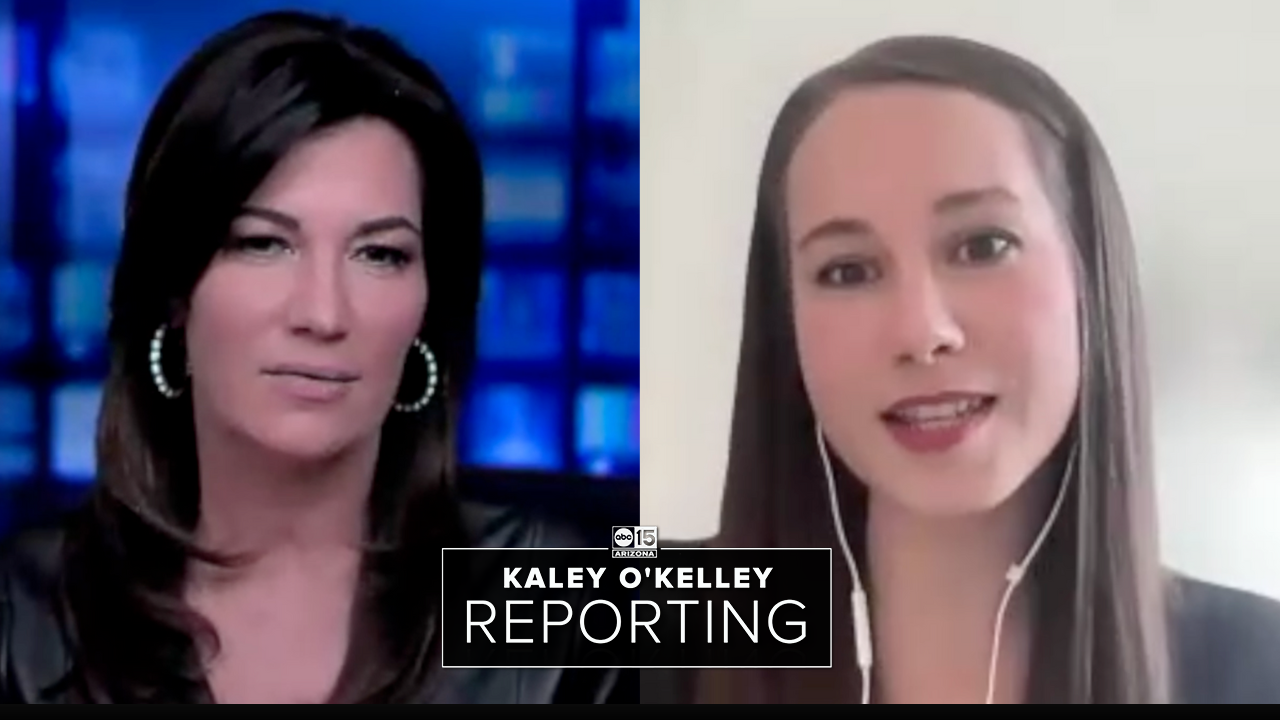October is Domestic Violence Awareness and Prevention Month, and across Arizona, purple lights are shining to spark conversations about healing and hope.
But for many survivors who find the strength to leave an abusive situation, the pain doesn’t always end when the relationship does. It can linger for years and sometimes quietly, sometimes without a diagnosis in the form of something called Complex Post-Traumatic Stress Disorder, or C-PTSD.
That’s something Danielle Carpio knows personally. She was diagnosed with C-PTSD in 2020 after years of wondering why traditional therapy and treatment weren’t helping. She tells ABC15's Kaley O'Kelley that realization was life-changing.
“For me, it was the first time I realized there wasn’t something fundamentally wrong with me,” Carpio told ABC15. “There was something wrong with what happened to me.”
Carpio is the founder and president of the Healing and C-PTSD Foundation and the creator of the Healing and C-PTSD Community: an online network of more than 300,000 people from around the world who come together to learn, connect, and heal.
Through that work, she has become one of the country’s most vocal advocates for C-PTSD awareness and education.
“PTSD comes from a singular traumatic incident,” Carpio explains. “Whereas Complex PTSD comes from prolonged exposure to trauma, in an environment where the victim perceives there’s no escape.”
C-PTSD can show up in ways that are often misunderstood.
Common symptoms include self-blame for things that weren’t your fault, feelings of shame or guilt, trust issues even with people who care about you, big emotional reactions to small triggers, depression, nightmares, and insomnia.
Carpio says learning to identify those symptoms is one of the most important steps in recovery.
“Learning the symptoms and being able to name what’s happening changes everything,” she said.
Right now, the World Health Organization officially recognizes C-PTSD as a diagnosable condition—but the United States does not. Without that recognition in the U.S. diagnostic manual, survivors may miss out on health care coverage and treatment options they deserve.
“When you name the storm, people stop thinking they are the storm,” Carpio said.
Through her foundation, she’s now leading a national effort to change that, collecting signatures on a petition to push for formal recognition of C-PTSD in the U.S.
“What everyone can do so easily is spend two seconds to sign the petition saying, 'Hey, this is real. You should be recognizing this,'" Carpio said.
She tells O'Kelley, through her online platform, the Healing and C-PTSD Community, she and her team offer free guides, classes, and virtual events to help survivors understand what they’ve been through and find safe, trauma-informed spaces to heal.
“It’s a place where people realize they’re not alone,” she said. “And that can change everything.”
Carpio believes awareness is prevention. She says that understanding how complex trauma works—and how it shapes behavior—can help stop cycles of abuse before they begin.
“Healing is possible,” she said. “You’re not broken. You just need a name for what you’ve survived.”
If you or someone you love recognizes these symptoms or needs help, you’re not alone. You can join the Healing and C-PTSD Community or learn more about the Foundation’s work by visiting their website.





